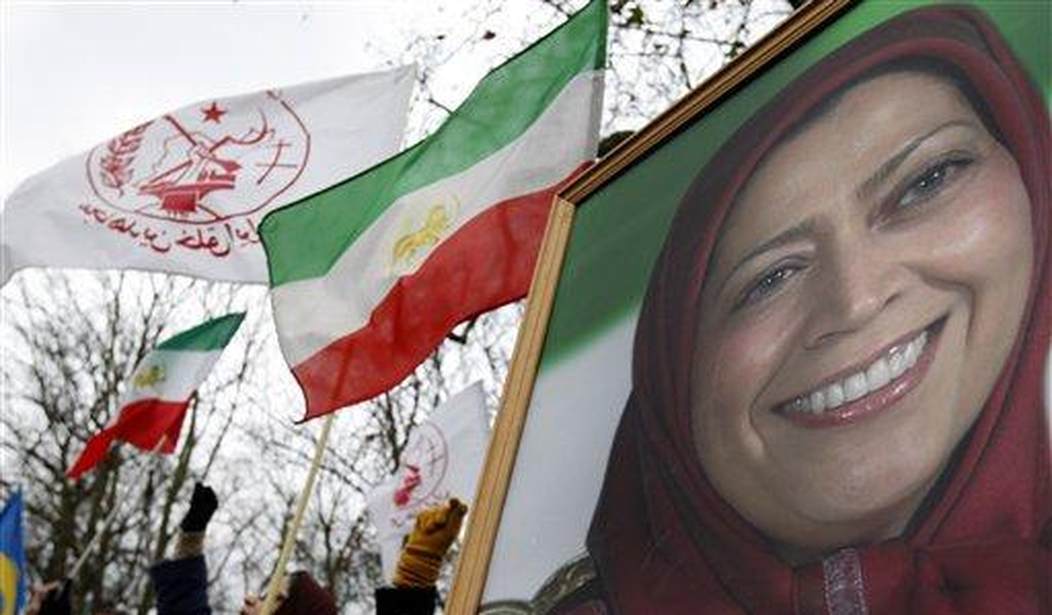Last September, a young woman named Mahsa Amini was fatally beaten by “morality police” in the Iranian capital of Tehran, after being accused of wearing the mandatory headscarf too loosely. News of her death prompted crowds of people from all walks of life to rise up to call for the end of the regime. Participants chanted slogans like “death to the dictator” in as many as 300 localities spanning all 31 Iranian provinces.
Regime authorities responded with brutal repression, killing at least 750 protesters and arresting 30,000 others, according to intelligence gathered by the country’s leading pro-democracy opposition group, the People’s Mojahedin Organization of Iran (PMOI/MEK). Nevertheless, demonstrations continued for months afterward, even after Tehran's judiciary executed protesters on vague charges including “enmity against God” before ramping up the overall rate of executions throughout the first half of 2023.
Videos are still being shared on social media from throughout the country, which indicate that the anti-regime messaging is alive and well, and that there is strong potential for nationwide unrest to erupt once again. Even Iranian state media outlets and certain regime officials have urged the leadership to tread lightly in its suppressive tactics.
The uprising is widely recognized as the greatest challenge to the ruling system since it was established in the wake of the 1979 anti-monarchical revolution. One can easily imagine how much greater that challenge would be if the nationwide unrest were rekindled before the regime could even finish repressing what has gone before.
This should be a hopeful thought for anyone who is appropriately concerned by the recent upturn in Tehran’s various malign activities. As well as being an outlet for the regime’s familiar human rights violations, the uprising coincided with the discovery of uranium at an Iranian nuclear site that had been enriched to the very brink of weapons grade, as well as the recovery of numerous drone components which proved that Iran has been actively supplying Russia with weapons for use in its war of aggression on Ukraine.
Recommended
Popular opposition to all of these activities is clearly voiced in domestic revolt against the clerical regime. This is all the more apparent in light of reports that the MEK has played a major role in the uprising, via its network of “Resistance Units.” The MEK stands at the head of a coalition of pro-democracy groups known as the National Council of Resistance of Iran (NCRI), which represents the framework of a democratic transitional government for Iran.
That coalition has elected Maryam Rajavi to serve as president of that transitional government, and she in turn has outlined a “ten-point” plan for Iran’s future in the wake of the mullahs’ overthrow. That plan includes a commitment to free and fair elections and the separation of religion from the state, but also formalizes the new government’s opposition to the policies of the mullahs, by calling for peaceful foreign relations and non-interference, as well as abandonment of a nuclear Iran.
The recent nationwide uprising underscores the broad support currently enjoyed by the MEK and the NCRI inside Iran. There can be no doubt that Mrs. Rajavi’s ten-point plan represents a better outcome for the Iranian people. Neither can there be any doubt that the resulting transition to democratic governance would be of benefit to people across the world. That transition is effectively the only permanent and comprehensive solution to the threats that now loom over both the Iranian people and their would-be allies abroad.
Many Western policymakers have already clearly expressed their support for the people and the Iranian Resistance. But more should follow suit, lest they miss the opportunity to support renewed unrest and to encourage a parallel shift in European and American policies, with the aim of helping the Iranian people to achieve their ultimate goal.
Recently, 115 former Presidents and Prime Ministers from the US, Britain, the EU, and Latin America signed a letter urging just such a change in policy, while also reiterating their endorsement of the NCRI and its ten-point plan. The letter called for coordinated opposition to the regime's policies of nuclear blackmail and hostage-taking, and specifically urged the relevant governments to designate as a terrorist group the Islamic Revolutionary Guard Corps (IRGC) – the entity primarily responsible for crackdowns on domestic dissent, as well as the proliferation of militant proxies throughout the region and the world.
Those calls to action have been echoed throughout the Iranian expatriate community, and will be again on July 1, when tens of thousands of people from throughout the world will gather in Paris for a mass protest calling attention to the recent uprising and the potential for its recurrence in the near future.
This event serves as a critical opportunity for Western policymakers and the global community to counter the Iranian regime's attempts to halt the rally. Reportedly, this demand was raised by Iranian President Ebrahim Raisi in a recent conversation with French President Emmanuel Macron.
Expressing support for this event can send a strong message. First, it would show solidarity with the Iranian people, particularly those who have suffered under the regime’s repression. Secondly, it would affirm the commitment of the international community to democratic values and human rights. And thirdly, it would send a signal to the Iranian regime that attempts to stifle dissent, whether domestically or internationally, are not acceptable.
Ken Blackwell is the former U.S. Ambassador to the United Nations Human Rights Commission.

























Join the conversation as a VIP Member